This article was co-authored by Chloe Carmichael, PhD. Chloe Carmichael, PhD is a Licensed Clinical Psychologist who runs a private practice in New York City. With over a decade of psychological consulting experience, Dr. Chloe specializes in relationship issues, stress management, self esteem, and career coaching. She has also instructed undergraduate courses at Long Island University and has served as adjunct faculty at the City University of New York. Dr. Chloe completed her PhD in Clinical Psychology at Long Island University in Brooklyn, New York and her clinical training at Lenox Hill Hospital and Kings County Hospital. She is accredited by the American Psychological Association and is the author of “Nervous Energy: Harness the Power of Your Anxiety” and “Dr. Chloe's 10 Commandments of Dating.”
There are 9 references cited in this article, which can be found at the bottom of the page.
This article has been viewed 96,215 times.
Are you concerned about the amount of time you spend online? While the internet can be a great resource for social connection and information, many of us begin to suffer emotional and physical side effects if our computer use becomes excessive. There are a variety of steps you can take to curb your computer habits and spend some time away from the screen each day.
Steps
Identifying the Sources
-
1Know the risks. Too much time in front of a screen isn't just a time waster. It can cause physical and emotional distress. Understand how too much time on the computer can affect you. Adequately knowing the risks provides motivation to quit.
- Spending more than 4 hours a day in front of a screen can increase the risk for heart disease, even if they engage in adequate amounts of exercise throughout the week.[1]
- Some studies show that excessive screen time damages brain tissues and ultimately impairs the brain's ability to function. The frontal lobe, which determines success in many areas of life, is most susceptible to damage.[2]
- Carpal tunnel syndrome is a well-known health risk of heavy computer users.
- If you have pre-existing mental health issues, especially hypochondria and obsessive compulsive disorder, the onslaught of information readily available online can fuel unwanted thoughts. For example, hypochondriacs often turn to WebMD to self-diagnose benign symptoms as serious medical problems.[3]
- While rare, some people develop Internet or Computer Addiction. Excessive use of the internet or the computer becomes addictive, causing emotional symptoms like depression, anxiety, and a feeling of isolation and physical side effects like back aches, headaches, weight loss, and weight gain. If you worry you might be suffering from an addiction to your computer or the internet, seek psychiatric care.[4]
-
2List what you do on the computer. In order to understand where and how you're spending too much time on your computer or laptop, keep track of the websites you visit and anything else you do in front of the screen. Which websites are causing the problem?
- Figure out how much time you spend online.
- Do you use the internet primarily for social media? Are you a Facebook, Twitter, or Instagram user? Do you find yourself mindlessly scrolling a newsfeed? Try to figure out why you're drawn to social media sites and how you might be able to cut back.
- Many people use the internet for watching television, movies, and videos. Do you spend a lot of time on Netflix and YouTube? Is watching things your primary form of relaxation? Is there anything else you can do to unwind besides indulging in online viewing?
- Are you a news junkie? Do you read the New York Times, Huffington Post, and other news-related websites to stay up-to-date with the world? If so, could you subscribe to a few magazines or read a newspaper in lieu of getting your news solely through the screen.
- Do you play any games? Many people use their computer primarily on their laptop, whether online with other players or solo. How many hours do you spend on computer games each day/night?
- Track your computer time for a week, making a comprehensive list of all the sites you visit and anything else you do with your computer. Try to figure out what websites, applications, and games take up the most time.
Advertisement -
3Figure out how much time you spend in front of the screen. Many people are shocked when they actually calculate how much time they're spending on their computer. Figure out approximately how many hours a day you spend in front of the screen. This can be great motivation to quit.
- You can use pen and paper to create a computer log for yourself. Write down the websites you visit, games you play, etc., and keep track of start and end times for your computer activity. Total the hours at the end of the day.
- If you have trouble keeping track of information yourself, there is a time management and analytics app called RescueTime. It breaks down how much active time you spend on your computer and what websites, games, and applications you're focus the most attention.[5]
Altering Internet Usage
-
1Make an Internet schedule. When it comes to using a computer, quitting cold turkey is no longer an option. We're increasingly dependent on the internet and email for work, our social lives, paying bills, and making purchases. Making an online schedule is a more viable option. Limit the time you spend online without completely eliminating the habit.
- Plan what times you will go on your computer. For example, say you find yourself mindlessly passing the hours after dinner on the Internet. Limit the time you go online to one hour and, after that hour is up, find other ways to pass the time.[6] [7]
- List the websites you plan to visit. The reason many of us fritter away hours online is because of unplanned websites visits and, as many sites link you other relevant sites, you end up getting drawn in for hours. Go online only with specific intentions. Plan to check your email, Facebook, read a news article, and then turn off the computer.[8] To save time, you can even get your computer to pull up specific tabs that you use a lot, so you aren't spending as much time typing and clicking.[9]
- If you crave the occasional spontaneous internet searches, set a timer for how long you can search aimlessly. Give yourself one to two hours of unplanned internet usage and then disconnect for the remainder of the day.
-
2Use technology to your advantage. There are a litany of applications and add-ons available that can block your access to time wasting websites. Invest in some of these if self control alone isn't cutting it in terms of lessening your time on the computer.
- If you're a Firefox user, there is an add-on called LeechBlock. You can block time wasting websites for specific time periods, ranging from a few hours to a few days. If you use Chrome, there is a similar add-on called StayFocused and Internet Explorer simply allows you to block certain sites by manipulating your blocking settings.[10]
- There is a MacOS application called SelfControl that allows you to black list certain websites. You set a timer and you are unable to access the listed websites during that time. For PC users, there is a similar application called Freedom.[11]
-
3Uninstall anything you don't absolutely need. If your computer time is caused primarily by gaming or using certain application, it might be time to simply uninstall.
- What do you absolutely need your computer for? For most of us, we need our computers to check our email for work and access calendars and schedules. You might have different needs, depending on your location and occupation. Figure out what you need versus what you don't need and go from there.
- It can be difficult to uninstall a video game you're prone to playing frequently, especially if you have data and information stored that will be lost. You might not have the personal will power to do so. Talk to a friend or loved one about how you feel you're spending too much time on the computer. See if they can come over and uninstall the game for you.
-
4Make access difficult. Sometimes, out of sight out of mind is an effective tool to lessen your computer time. Simply making it difficult to access the internet or your laptop can give you added time to consider what you're doing and make the decision to take a break from the computer.
- Rearrange your computer's screen. This is a simple but effective trick when it comes to lessening screen time. Remove browsers from your dock, as well as short cuts to websites like Facebook, Twitter, and Instagram. If you have your email set up in a mail application, remove the application.[12]
- Change where you keep your laptop or computer. If your computer is easy to access, you're more likely to use it. If, for example, your computer is on a desk near your bed you're likely to start off the morning by checking Facebook. Have a designated area in your home where you keep your laptop and/or computer and do not use those electronics outside of that space.[13]
- Unplug your modem. If you have to wait for the modem to start up, this will give you added time to consider whether you really need to go online. Unplug the modem after your designated daily internet usage.
- Turn off your computer when you're not using it. The added start up time helps you slow down and reconsider how you're spending your time.[14]
-
5Take breaks. Sometimes, even if we're wary about screen time, we have to be on a computer for work or school. If that's the case for you, schedule breaks to save yourself the physical and emotional side effects of too much computer time.
- Schedule regular breaks if you're using the computer to complete a project. We are often tempted to take breaks on the computer. For example, after an hour of work we allow ourselves to check Facebook or Twitter. Instead of online rewards, go for a 10 minute walk every 50 minutes or take a break to have a snack or listen to your iPod.[15]
- There are many 10 minute workouts you can do during your designated break time. Exercise helps us cope with stress and can counter some of the negative health effects of sitting in front of a screen too long. Push-ups, pull-ups, and squats are great options.[16]
- Ten minutes of meditation can also help relax you. You can find meditation techniques online or ask friends who you know practice meditation.[17]
Changing Lifestyle Habits
-
1Find hobbies. A lot of the time, the computer serves as our primary form of relaxation. If you've fallen into a rut in regards to your recreational activities, try to take up some new hobbies to combat excessive internet use.[18]
- If you want something you can do at home after work, invest in crossword puzzles, sudoku, board games, and cards. If you live with a roommate, family, or a significant other propose a weekly game night.
- Declare internet free days or time frames and use that time to engage in other activities. Oftentimes, getting out into nature can help curb internet usage. Try going for hikes on weekends or brisk jogs after work.
- If you're the type who does a lot of reading online, consider buying physical books and subscribing to magazines related to your interests.[19]
Nightly reading can help you get away from the computer.
-
1Seek psychiatric help. A high amount of internet usage is sometimes associated with pre-existing conditions like depression and anxiety. Or you might be suffering from internet or computer addiction itself.
- Know the symptoms of psychiatric disorders. Do you have a persistent sad, empty, or numb mood? Do you experience feelings of guilt or worthlessness? Do you have trouble making decisions and meeting deadlines because of these feelings? Have you had physical side effects, like weight lose or gain, insomnia, headaches, and digestive issues?[20]
- Do you use the internet or computer to avoid or combat these feelings? Do you experience feelings of euphoria when going online that temporarily alleviate negative moods?[21]
- You can find a psychiatrist by visiting your insurance provider's website and seeing where you plan is accepted. If you're a student, you can usually get free counseling through your university.
- Be patient. It can take awhile to find the right counselor and you're uncomfortable with one therapist you can ask for a referral to another therapist in your area.
-
2Use the internet to enhance your real life. If you use the internet to encourage an active social life, you'll end up spending less time in front of the screen. Use your computer to your advantage. Make plans and meet new people.
- Make plans with friends. Facebook events, google calendars, and e-vites can be used to reach out to people and make plans. As most people spend a great deal of time online they might be more likely to respond to and remember an online invitation than one in the form of a phone call or paper invitation.[22]
- Use sites like Meetup. Meetup is a website that advertises groups around any given city relevant to a wide array of interests. Create a profile on Meetup and go to events near. It's a great way to get out of the house and meet new people.[23]
- Skype of Google Chat with long distance friends. One of the reasons being online too much affects us emotionally is because we feel isolated. If you use the video chat feature on Skype or Google Chat to converse with long distance friends, instead of increasing your sense of alienation the internet can bring you closer to others. While this seems counterintuitive, you might ultimately end up spending less time online if you're in a better mood.
Expert Q&A
-
QuestionHow can I spend less time with technology?
 Chloe Carmichael, PhDChloe Carmichael, PhD is a Licensed Clinical Psychologist who runs a private practice in New York City. With over a decade of psychological consulting experience, Dr. Chloe specializes in relationship issues, stress management, self esteem, and career coaching. She has also instructed undergraduate courses at Long Island University and has served as adjunct faculty at the City University of New York. Dr. Chloe completed her PhD in Clinical Psychology at Long Island University in Brooklyn, New York and her clinical training at Lenox Hill Hospital and Kings County Hospital. She is accredited by the American Psychological Association and is the author of “Nervous Energy: Harness the Power of Your Anxiety” and “Dr. Chloe's 10 Commandments of Dating.”
Chloe Carmichael, PhDChloe Carmichael, PhD is a Licensed Clinical Psychologist who runs a private practice in New York City. With over a decade of psychological consulting experience, Dr. Chloe specializes in relationship issues, stress management, self esteem, and career coaching. She has also instructed undergraduate courses at Long Island University and has served as adjunct faculty at the City University of New York. Dr. Chloe completed her PhD in Clinical Psychology at Long Island University in Brooklyn, New York and her clinical training at Lenox Hill Hospital and Kings County Hospital. She is accredited by the American Psychological Association and is the author of “Nervous Energy: Harness the Power of Your Anxiety” and “Dr. Chloe's 10 Commandments of Dating.”
Licensed Clinical Psychologist Try taking advantage of voice technology, like Amazon Alexa, Google Home, or another Smart Home device. You learn a lot of info from these devices without ever having to use your computer!
Try taking advantage of voice technology, like Amazon Alexa, Google Home, or another Smart Home device. You learn a lot of info from these devices without ever having to use your computer! -
QuestionHow can I reduce the time I use the Internet?
 Chloe Carmichael, PhDChloe Carmichael, PhD is a Licensed Clinical Psychologist who runs a private practice in New York City. With over a decade of psychological consulting experience, Dr. Chloe specializes in relationship issues, stress management, self esteem, and career coaching. She has also instructed undergraduate courses at Long Island University and has served as adjunct faculty at the City University of New York. Dr. Chloe completed her PhD in Clinical Psychology at Long Island University in Brooklyn, New York and her clinical training at Lenox Hill Hospital and Kings County Hospital. She is accredited by the American Psychological Association and is the author of “Nervous Energy: Harness the Power of Your Anxiety” and “Dr. Chloe's 10 Commandments of Dating.”
Chloe Carmichael, PhDChloe Carmichael, PhD is a Licensed Clinical Psychologist who runs a private practice in New York City. With over a decade of psychological consulting experience, Dr. Chloe specializes in relationship issues, stress management, self esteem, and career coaching. She has also instructed undergraduate courses at Long Island University and has served as adjunct faculty at the City University of New York. Dr. Chloe completed her PhD in Clinical Psychology at Long Island University in Brooklyn, New York and her clinical training at Lenox Hill Hospital and Kings County Hospital. She is accredited by the American Psychological Association and is the author of “Nervous Energy: Harness the Power of Your Anxiety” and “Dr. Chloe's 10 Commandments of Dating.”
Licensed Clinical Psychologist Write a list of all the places you want to go on the web! Instead of hopping on and off the computer throughout the day, make a list of everything you'd like to do online. Then, you can get it all done at once.
Write a list of all the places you want to go on the web! Instead of hopping on and off the computer throughout the day, make a list of everything you'd like to do online. Then, you can get it all done at once. -
QuestionHow can I spend less time in front of my screen?
 Chloe Carmichael, PhDChloe Carmichael, PhD is a Licensed Clinical Psychologist who runs a private practice in New York City. With over a decade of psychological consulting experience, Dr. Chloe specializes in relationship issues, stress management, self esteem, and career coaching. She has also instructed undergraduate courses at Long Island University and has served as adjunct faculty at the City University of New York. Dr. Chloe completed her PhD in Clinical Psychology at Long Island University in Brooklyn, New York and her clinical training at Lenox Hill Hospital and Kings County Hospital. She is accredited by the American Psychological Association and is the author of “Nervous Energy: Harness the Power of Your Anxiety” and “Dr. Chloe's 10 Commandments of Dating.”
Chloe Carmichael, PhDChloe Carmichael, PhD is a Licensed Clinical Psychologist who runs a private practice in New York City. With over a decade of psychological consulting experience, Dr. Chloe specializes in relationship issues, stress management, self esteem, and career coaching. She has also instructed undergraduate courses at Long Island University and has served as adjunct faculty at the City University of New York. Dr. Chloe completed her PhD in Clinical Psychology at Long Island University in Brooklyn, New York and her clinical training at Lenox Hill Hospital and Kings County Hospital. She is accredited by the American Psychological Association and is the author of “Nervous Energy: Harness the Power of Your Anxiety” and “Dr. Chloe's 10 Commandments of Dating.”
Licensed Clinical Psychologist Set up a designated "screen time" for yourself. If you have a smart home device, you can program it to remind you when your screen time starts and ends.
Set up a designated "screen time" for yourself. If you have a smart home device, you can program it to remind you when your screen time starts and ends.
References
- ↑ http://www.livescience.com/9257-exercise-undo-damage-screen-time.html
- ↑ https://www.psychologytoday.com/blog/mental-wealth/201402/gray-matters-too-much-screen-time-damages-the-brain
- ↑ http://www.psychguides.com/guides/computerinternet-addiction-symptoms-causes-and-effects/
- ↑ http://www.psychguides.com/guides/computerinternet-addiction-symptoms-causes-and-effects/
- ↑ http://www.marksdailyapple.com/13-ways-to-spend-less-time-online-and-reclaim-your-real-life/#axzz3fhkRfcNL
- ↑ http://www.planetofsuccess.com/blog/2011/how-i-stopped-wasting-time-online/
- ↑ Chloe Carmichael, PhD. Licensed Clinical Psychologist. Expert Interview. 21 September 2021.
- ↑ http://www.planetofsuccess.com/blog/2011/how-i-stopped-wasting-time-online/
- ↑ Chloe Carmichael, PhD. Licensed Clinical Psychologist. Expert Interview. 21 September 2021.
- ↑ http://www.planetofsuccess.com/blog/2011/how-i-stopped-wasting-time-online/
- ↑ http://www.planetofsuccess.com/blog/2011/how-i-stopped-wasting-time-online/
- ↑ http://theselfhelphipster.com/how-to-get-away-from-your-computer/
- ↑ http://theselfhelphipster.com/how-to-get-away-from-your-computer/
- ↑ http://theselfhelphipster.com/how-to-get-away-from-your-computer/
- ↑ http://www.marksdailyapple.com/13-ways-to-spend-less-time-online-and-reclaim-your-real-life/#axzz3fhkRfcNL
- ↑ http://www.marksdailyapple.com/13-ways-to-spend-less-time-online-and-reclaim-your-real-life/#axzz3fhkRfcNL
- ↑ http://www.marksdailyapple.com/13-ways-to-spend-less-time-online-and-reclaim-your-real-life/#axzz3fhkRfcNL
- ↑ Chloe Carmichael, PhD. Licensed Clinical Psychologist. Expert Interview. 21 September 2021.
- ↑ Chloe Carmichael, PhD. Licensed Clinical Psychologist. Expert Interview. 21 September 2021.
- ↑ http://www.adaa.org/understanding-anxiety/depression/symptoms
- ↑ http://www.adaa.org/understanding-anxiety/depression/symptoms
- ↑ http://www.marksdailyapple.com/13-ways-to-spend-less-time-online-and-reclaim-your-real-life/#axzz3fhkRfcNL
- ↑ http://www.marksdailyapple.com/13-ways-to-spend-less-time-online-and-reclaim-your-real-life/#axzz3fhkRfcNLM
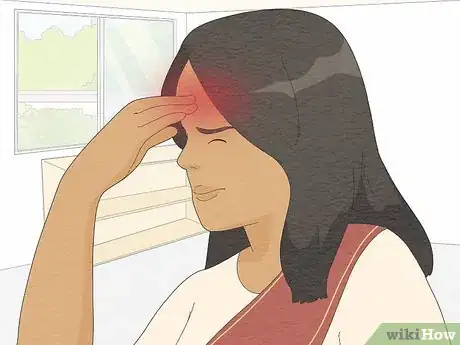

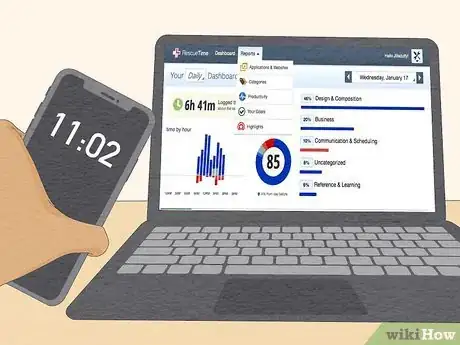
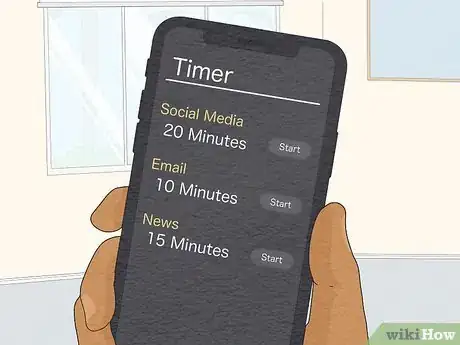

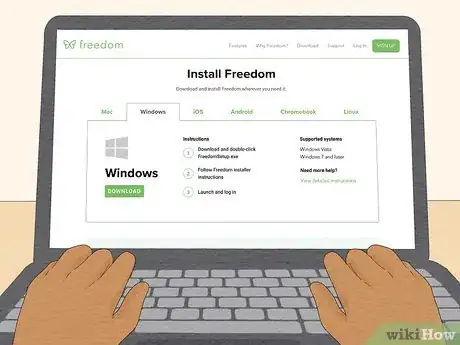
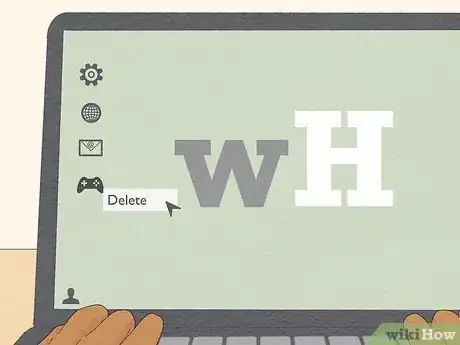
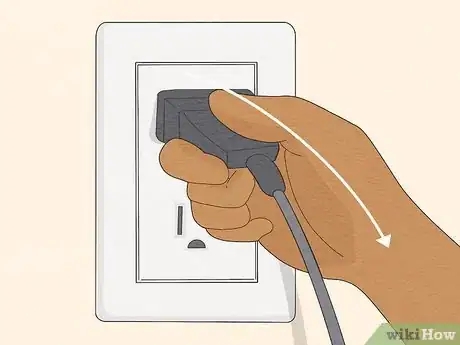
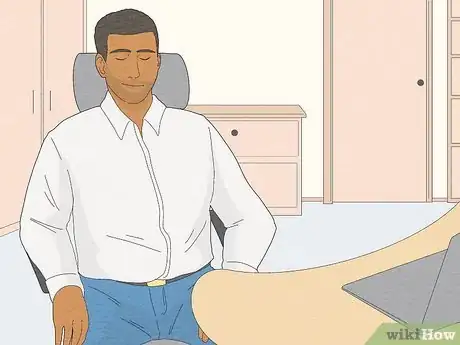


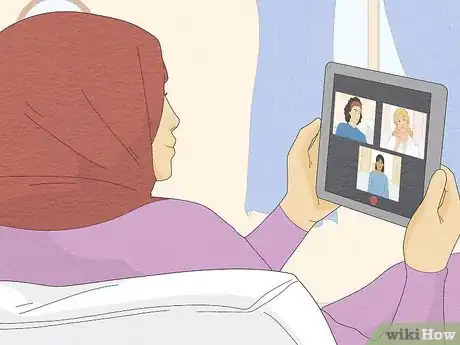











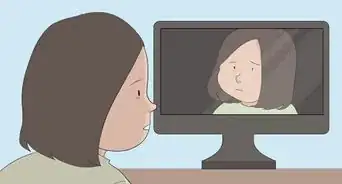

















































Medical Disclaimer
The content of this article is not intended to be a substitute for professional medical advice, examination, diagnosis, or treatment. You should always contact your doctor or other qualified healthcare professional before starting, changing, or stopping any kind of health treatment.
Read More...